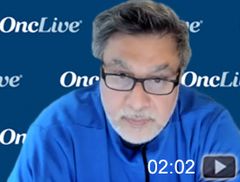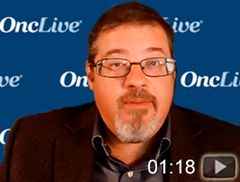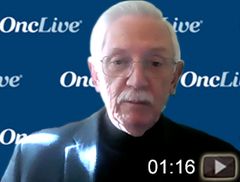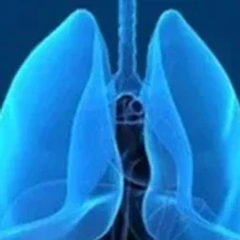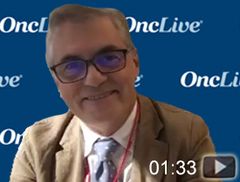
Dr. Rizvi on Biomarkers of Response to Immunotherapy in NSCLC
Naiyer A. Rizvi, MD, discusses the use of biomarkers to select patients with non–small cell lung cancer for treatment with immunotherapy.
Episodes in this series

Naiyer A. Rizvi, MD, Price Family Professor of Medicine; director of Thoracic Oncology; and co-director of Cancer Immunotherapy at Herbert Irving Comprehensive Cancer Center, of Columbia University Medical Center, as well as the research director at the Price Family Comprehensive Center for Chest Care of NewYork-Presbyterian Hospital, discusses the use of biomarkers to select patients with non–small cell lung cancer (NSCLC) for treatment with immunotherapy.
Tumor mutational burden (TMB) can be a useful tool to select patients with NSCLC who should receive immunotherapy, according to Rizvi. Pembrolizumab (Keytruda) monotherapy, for example, was
Patients who have a PD-L1 expression of 50% or higher are generally treated with pembrolizumab monotherapy, although retrospective data with the agent and additional data with cemiplimab (Libtayo) indicate that different PD-L1 levels can impact response to treatment. For example, patients with a PD-L1 expression of 90% or higher are more likely to benefit from a PD-1 monotherapy versus someone with a PD-L1 expression of 50% to 60%, according to Rizvi.
Additionally, mutations in STK11 and KEAP1 are most commonly observed in these patients and they have been shown to be associated with poor prognosis and potential resistance to immunotherapy, adds Rizvi. Some approaches may help to actively address these specific mutations, such as epigenetic modifiers, concludes Rizvi.


